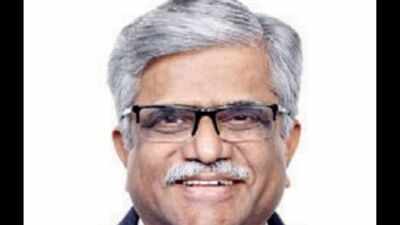Top Searches
- News
- City News
- bengaluru News
- Second wave not over yet, curbs needed: Experts
Second wave not over yet, curbs needed: Experts

"For it to subside, there should not be local transmission. We have not yet reached that stage. We are still witnessing local transmission," said Dr MK Sudarshan, Karnataka Covid Technical Advisory Committee chief.
BENGALURU: Dr MK Sudarshan, state Covid Technical Advisory Committee chief, said the second wave of the pandemic is not over and infections that had subsided due to restrictions during the lockdown are surging again. Dakshina Kannada reported more Covid-19 infections than Bengaluru Urban on Sunday.
This is the first time Bengaluru Urban is not at the top of the list of daily cases since the pandemic hit.
“We have to take steps to end the second wave,” Dr Sudarshan said. “For it to subside, there should not be local transmission. We have not yet reached that stage. We are still witnessing local transmission.”
The state had 1,502 fresh cases on Sunday and while Dakshina Kannada reported 410 cases, Bengaluru Urban registered 409 cases. Bagalkot was the only district to report zero cases on Sunday.
More than 1.5 lakh tests were conducted in the past 24 hours and the state’s test positivity rate for the day was 1.2%.
The state recorded 25 more Covid deaths, of which eight were from Bengaluru and six from Dakshina Kannada. The state currently has 24,144 active cases, including 8,555 in Bengaluru and 2,943 in Dakshina Kannada.
Dr V Ravi, virologist and member of the Covid taskforce, said the third wave has not yet begun. “But waves always begin with a surge in bordering districts as Karnataka is sandwiched between two hotspots — Maharashtra and Kerala. By the end of next week, we will know whether the spike is just spillover cases or if it is another wave,” said Dr Ravi.
While Bengaluru’s test positivity rate for the past seven days was 0.8% — lower than the state average of 1.4 % — experts say restrictions must be imposed in the IT city too since it is a transit hub with a huge daily floating population.
Dr Kishore Kumar M, Dakshina Kannada district health officer, said the ones catching the infection in the district are those who were unaffected in the first wave. Nearly 80% of active cases were in home isolation.
This is the first time Bengaluru Urban is not at the top of the list of daily cases since the pandemic hit.
“We have to take steps to end the second wave,” Dr Sudarshan said. “For it to subside, there should not be local transmission. We have not yet reached that stage. We are still witnessing local transmission.”
The state had 1,502 fresh cases on Sunday and while Dakshina Kannada reported 410 cases, Bengaluru Urban registered 409 cases. Bagalkot was the only district to report zero cases on Sunday.
More than 1.5 lakh tests were conducted in the past 24 hours and the state’s test positivity rate for the day was 1.2%.
The state recorded 25 more Covid deaths, of which eight were from Bengaluru and six from Dakshina Kannada. The state currently has 24,144 active cases, including 8,555 in Bengaluru and 2,943 in Dakshina Kannada.
Dr V Ravi, virologist and member of the Covid taskforce, said the third wave has not yet begun. “But waves always begin with a surge in bordering districts as Karnataka is sandwiched between two hotspots — Maharashtra and Kerala. By the end of next week, we will know whether the spike is just spillover cases or if it is another wave,” said Dr Ravi.
While Bengaluru’s test positivity rate for the past seven days was 0.8% — lower than the state average of 1.4 % — experts say restrictions must be imposed in the IT city too since it is a transit hub with a huge daily floating population.
Dr Kishore Kumar M, Dakshina Kannada district health officer, said the ones catching the infection in the district are those who were unaffected in the first wave. Nearly 80% of active cases were in home isolation.
FacebookTwitterLinkedinEMail
Start a Conversation
end of article

